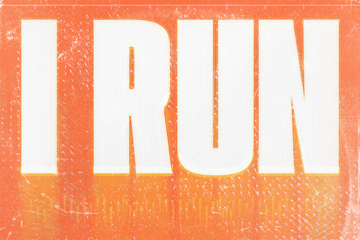Call Of Booty: Why Brandis' Piracy Crackdown Is A Sinking Ship
The government's crackdown on illegal downloads is a misguided, unhelpful exercise
Aside from being a fairly good argument for the idea that Wendigos are real and have made it to Australia, Attorney-General George Brandis has made headlines of late for being the man who is determined to wipe the scourge of online piracy from our shores.

With news recently surfacing that Brandis' proposed anti-piracy crackdown could come into effect as early as this week, media pirates around the country are no doubt feeling the heat as they stare down the double barrel of a three-strike rule alongside the potential threat of site-blocking for some of their favourite haunts.
Don't miss a beat with our FREE daily newsletter
Some bodies, such as the Australian Pirate Party, have wasted no time in doing their best to scuttle Brandis' proposals before they ever become a real threat, with the group recently launching a petition to the Senate to block the proposed reforms.
But, as some astute observers have noted, Brandis' attack on illegal downloads is misguided at best, and totally futile at worst, to say nothing of its implications for privacy law. There are serious problems with the assumptions it makes about pirates and piracy in general while ignoring valid calls for the media industry to take a long, hard look at itself in terms of the way it delivers content to Australian consumers.
Before we go any further, it's important to understand that this is not meant as an endorsement of piracy, but is rather an effort to examine the motivations behind such behaviour to provide a more practical solution than just getting all Orwellian on everybody.
It's no secret that Aussies love us some content plunderin'. But why are we so incorrigible when it comes to copyrighted material?
It's a fundamental truth that laws are at their best when they reflect the will of society, and not the other way around. The wants and needs of the Australian public have long since left the “relevant” legislation in the dust, and Brandis' proposal threatens to widen the divide between what the people want and what puts a smile on big business' face.
Make no mistake, this is absolutely about money. Village Roadshow – whose chief executive, Graham Burke, recently chastised Google for having the audacity to provide a rational line of thought about piracy – is a prime example of the incestuous and problematic relationship between government and corporate Australia: it donated more than $300,000 to the Liberal Party last year alone and invited Brandis to private screenings, and probably not just because he really digs The Lego Movie.
“I'm so glad our social philosophy is not clouded by our love of sweet mountains of cash.”
Meanwhile, for its part, film rights group the Australian Screen Association has consistently been in touch with Brandis' department to remind them about the severity of the problem.
At the base of all of the vitriol and threats and expressions of disappointment in media pirates as people, the morally heavy-handed conclusive rhetoric is always the same: You scummy fucking consumers keep robbing us, so we're going to make your lives harder.
But, again, nobody stops to ask, “Why do you scummy fucking consumers keep robbing us?”
Google offered an answer when it suggested piracy in Australia was chiefly an issue of availability and pricing – the same suggestion that earned the ire of Village Roadshow's Burke. But if he would listen hard enough over the sound of his own self-assured chest-beating long enough to take in what Google, and the Australian Pirate Party, and several others are saying, he would see that they're absolutely right.
The problem with Brandis and Burke and most other anti-piracy advocates out there is that they seem to operate on a very narrow set of assumptions about pirate behaviour, none of which is actually all that accurate:
a) Media pirates are conscious criminals;
b) Illegal content is confined to shady-ass websites;
c) Piracy always costs people money;
d) The problem lies with the consumers, not the industry.
Of course, as soon as you look at those assertions written out, it's easy to see that they're pretty naff. Take The Walking Dead, for example. I watched its first season legitimately when it aired on TV here – but I also watched it months prior, while Australian studios were still locked in a pointless pissing contest over who would get the rights to the show. When it finally did air here - first on cable channel FX, then later via SBS - I watched it again, because I, you know, enjoyed it.
Did the fact I had previously downloaded the first season of The Walking Dead – while it wasn't even available in Australia – somehow impact the profits of anyone in Australia or, for that matter, its home country of the US? If it did, I would love to know how, since once it was available in our country, I made sure to behave like a normal, law-abiding consumer and watch it through legitimate channels.
My unwillingness – and the unwillingness of anyone who has pirated media since – to wait ties in to the idea that laws should reflect the society they are supposed to protect – we, as a global society, are more connected than we have ever been. Distinguishing between “the internet” and “real life” these days is problematic, because the internet is a part of real life. What happens here has an impact in non-digital arenas. Those are real people engaging with each other behind all those translated ones and zeroes, and you can no more tell the global community to rein in its excitement and enthusiasm for a show or film or other creative work than you can teach a lobotomy patient complex algebra using only words from four different dead languages.
“X + 6 equals veni, vidi, vici.”
You can't force people to stay off the internet for a year while the rest of the world is openly talking about a show that has captured popular imagination, nor should it be expected that we should have to tread on cyber-eggshells lest we stumble across an unwelcome spoiler, or have to miss out on discussing and engaging with the creative properties that we love altogether (and, yes, I am aware how dangerously close to being white whine this is).
Tomorrow: “Microwave Dinners – You Expect Me To Wait Five Minutes For This? Really?”, only on theMusic.com.au.
But, hey, we live in the First World, and this is a problem. The stubbornness of the majority of media outlets to so much as re-examine the way they do things is more damaging to their profits in the long-term than anything pirates could hope to achieve together – one need look no further than the ABC's recent (and wildly successful) imitation of the Netflix model with its whole-series dump of Jonah From Tonga, which (aside from being a great example of institutionally endorsed casual racism) did serious business for the broadcaster, and earned it an extra dimension of credibility as an adaptive organisation, when it dropped online last weekend.
While catch-up services and “Express From The US” branding strategies have gone the littlest of ways towards helping the situation, they have far from mitigated it entirely. In fact, it seems studios and TV stations are unwilling to acknowledge that their market has truly outgrown the existing model – wherein they hold control over who watches which shows, and when – despite the obvious reality of the situation.
Accessibility, however, is not the only side of this coin – the affordability issue stands out as well and is perhaps the larger driver of the two. When you compare the models between US and Australian cable, a disparity emerges. Comcast, for example, the US' premier cable provider, charges a maximum of $US69.99 ($74.70) for more than 260 channels, with its introductory package still giving users access to more than 45 channels for $US29.99 a month.
In comparison, Foxtel's Platinum package will set you back $99 a month (for six months, then $124/month after that) for a relatively weak 90 channels. They're a little more in line with Comcast at the bottom end ($24 a month for 41 channels for six months, then $49), but it's still not exactly a strong competitive rate.
Add to that Foxtel's insane channel packages – OK, great, you can finally watch Game Of Thrones legitimately but also, here, enjoy these five cooking channels and Arena as well – and piracy in Australia starts to look more and more like an ongoing act of frustrated defiance than of any serious criminal intent or unwillingness to compromise.
It's just that, especially with overseas streaming companies such as Hulu and Netflix now either cutting off Australian users or looking at doing so in the near future, stations and studios at home need to start thinking of practical ways, like the ABC did, to meet the changed needs and wants of the viewing public, or else – crackdown or no – they will undoubtedly find a way to keep getting the content they want, when they want, in the manner they damn well please.

Take what you can. Give nothing back.







